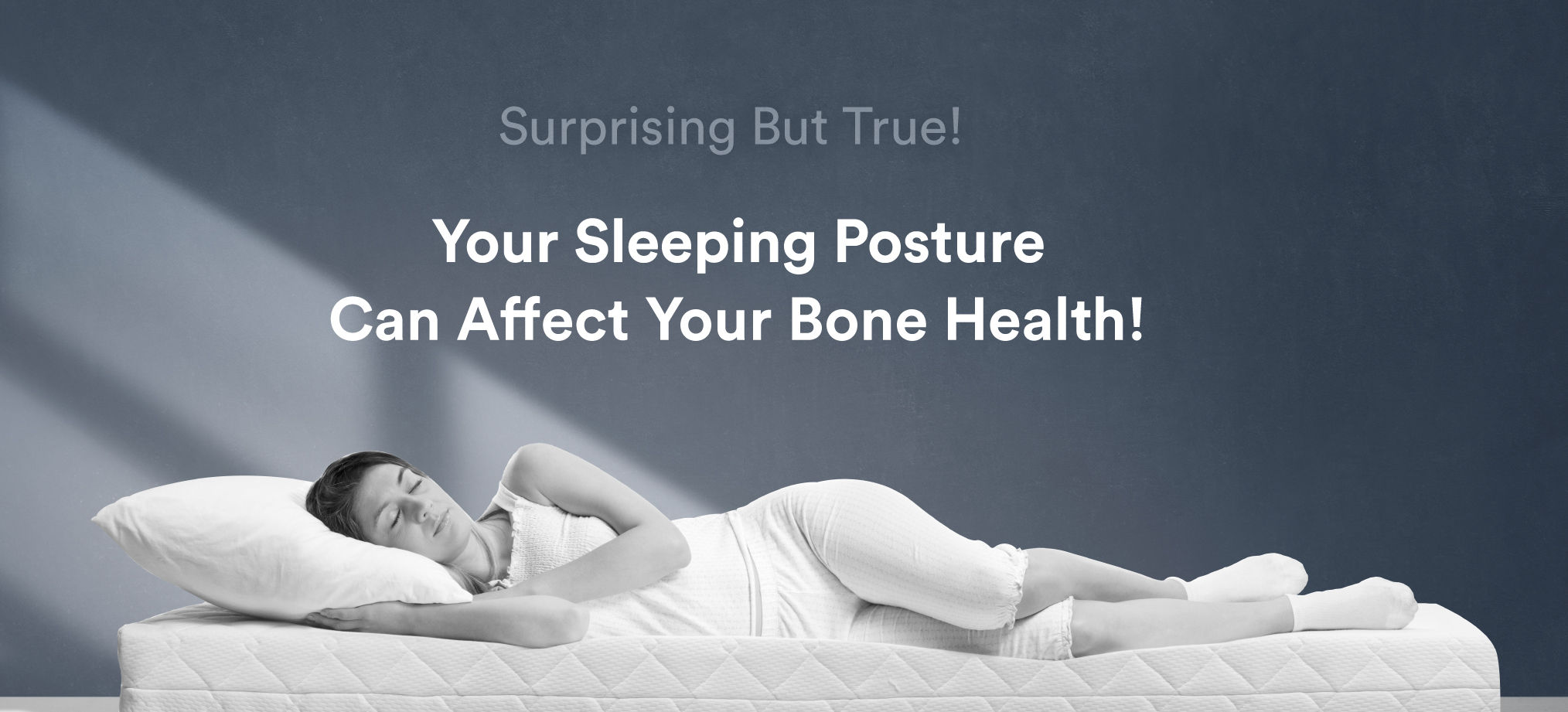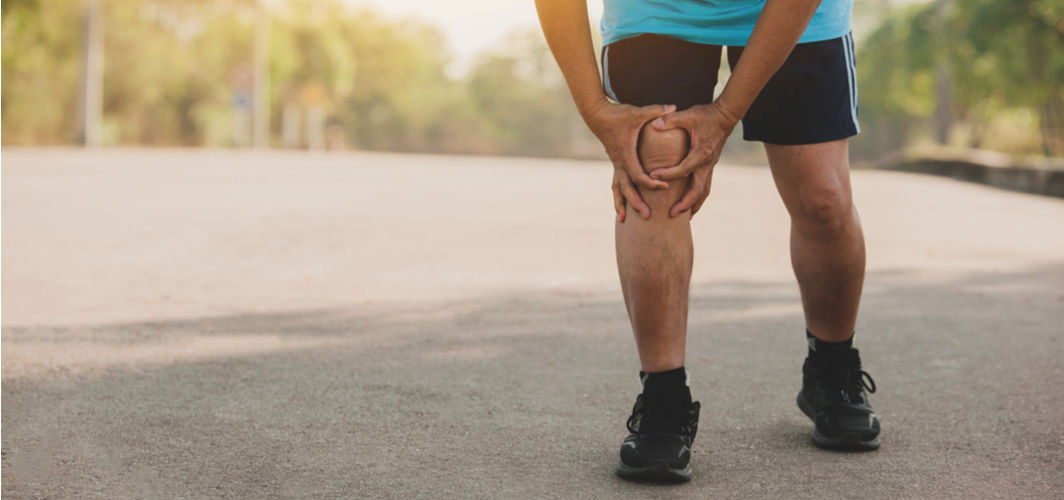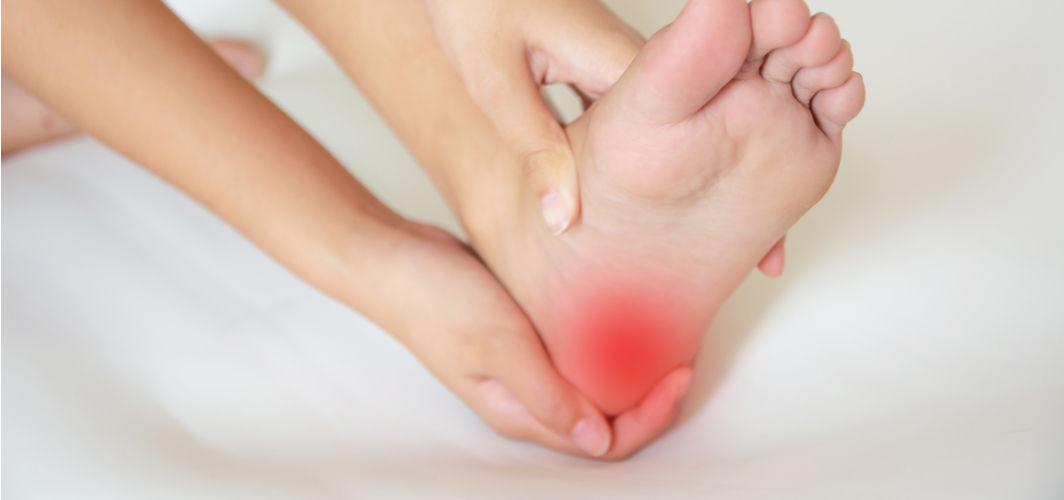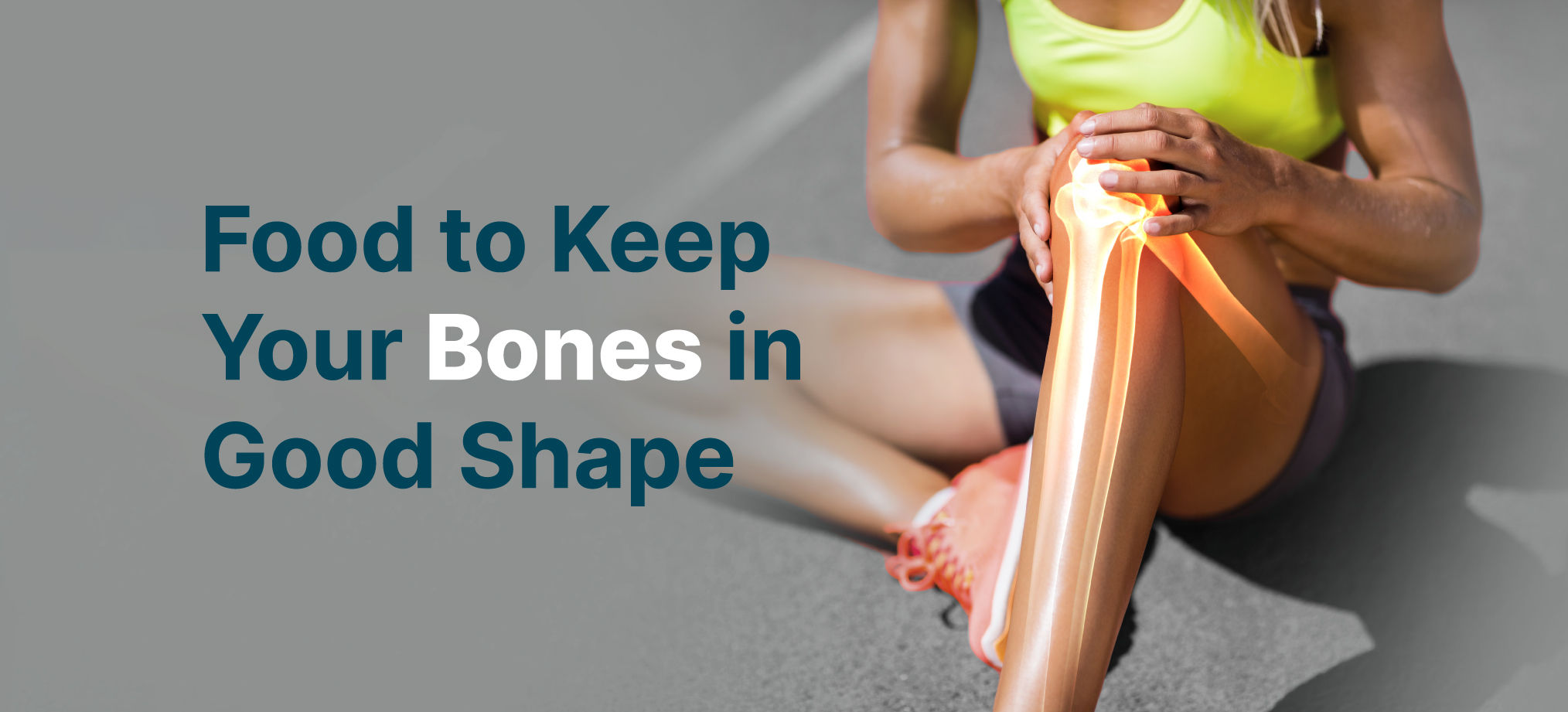Orthopedic Conditions
Your Sleeping Postures Can Put You At Risk For Osteoporosis
3 min read
By Apollo 24|7, Published on - 28 March 2023, Updated on - 21 June 2023
Share this article
0
0 like

Do you ever get up and feel achy and stiff? You may be surprised to find that your sleeping position may raise your risk of osteoporosis. Osteoporosis is a skeletal disorder that weakens bones, increasing their susceptibility to cracks and splits. It is a widespread problem that affects millions of people globally and has potentially fatal implications. But did you know that your sleeping position may be making matters even worst?
In this blog, let’s understand how your sleeping posture can affect your bone health and raise your chance of developing osteoporosis, along with some easy suggestions and options for lowering your chances of developing this disease.
The Impact of Sleeping Posture on Bone Health
Our bodies gradually gravitate and switch positions as we sleep during the night. On the other hand, certain sleeping habits can exert greater strain on our bones than others.
For instance, sleeping on your side or stomach with your legs folded can place too much pressure on your hips and vertebrae, which could eventually result in bone damage. Similarly, sleeping curled up can squeeze your spine and cause back pain and other problems.
Tips for Improving Your Sleep Posture
Easy ways to improve your sleeping positions include:
- To ensure your spine retains its natural shape, try resting on your back with a pillow under each knee.
- Avoid sleeping on your belly or side with your crossed legs because your hips and spine may be overly stressed.
- Get a mattress topper and pillow to complement your body's natural posture and relieve the pressure on your joints and bones.
- To support your back and buttocks while sleeping, place a cushion under your waist. Ensure, the cushion is not too fluffy.
- Practice proper sleeping habits by staying away from caffeinated drinks and gadgets an hour or two before bed. This would help you get better sleep, thus reducing the frequency of tossing and turning throughout the night.
- Refrain from sleeping with your arms above your head as it may cause shoulder and neck pain. Instead, try to keep your arms at your sides or use a pillow to support them.
- Gentle stretching can help release tension in your muscles and prepare your body for sleep. Try some light yoga or stretching exercises to help loosen up any tight muscles and promote relaxation.
Along with the practices mentioned above, one should indulge in calcium-rich foods and vitamin D supplements to ensure proper bone health.
By prioritising healthy sleep habits and investing in firm mattresses and pillows, you can ensure that you're getting the deep, restorative sleep your body needs to stay strong and healthy. Don't let poor sleeping posture put you at risk for osteoporosis, take action today to improve your sleep and protect your bones.
Consult Apollo's Expert Orthopaedic Doctors
Medically reviewed by Dr Sonia Bhatt.
Orthopedic Conditions
Leave Comment
Recommended for you

Orthopedic Conditions
Does COVID-19 Infection Have a Long-term Effect on Bone Health?
People who have recovered from COVID-19 are experiencing bone-health deterioration with difficulty in walking and higher incidences of fractures as the primary warning signs.

Orthopedic Conditions
Plantar Fasciitis: Managing Persistent Heel Pain
Plantar fasciitis is a common cause of heel pain that can develop due to overstretching, different anatomy of the foot or a medical condition.

Orthopedic Conditions
Here’s What You Need To Eat To Maintain Your Bone Health
Proper nutrition is required to build healthy bones and maintain them throughout life. Read to know the ways to achieve proper bone health.
Subscribe
Sign up for our free Health Library Daily Newsletter
Get doctor-approved health tips, news, and more.
Visual Stories

10 Foods That Are Unhealthy for Your Bones
Tap to continue exploring
Recommended for you

Orthopedic Conditions
Does COVID-19 Infection Have a Long-term Effect on Bone Health?
People who have recovered from COVID-19 are experiencing bone-health deterioration with difficulty in walking and higher incidences of fractures as the primary warning signs.

Orthopedic Conditions
Plantar Fasciitis: Managing Persistent Heel Pain
Plantar fasciitis is a common cause of heel pain that can develop due to overstretching, different anatomy of the foot or a medical condition.

Orthopedic Conditions
Here’s What You Need To Eat To Maintain Your Bone Health
Proper nutrition is required to build healthy bones and maintain them throughout life. Read to know the ways to achieve proper bone health.
